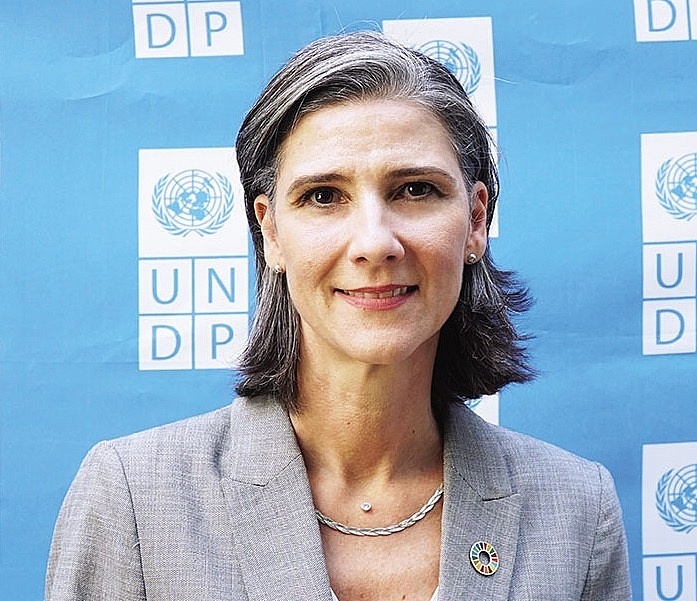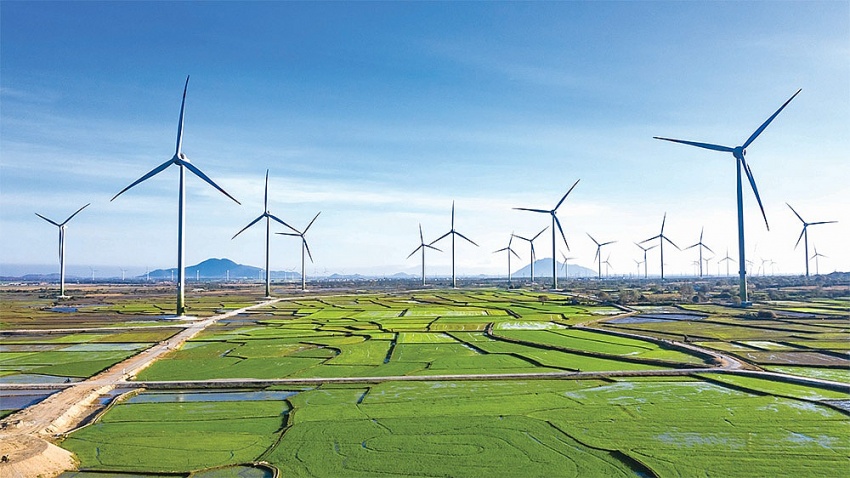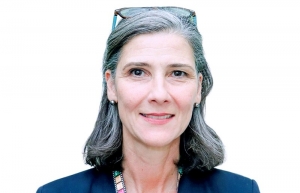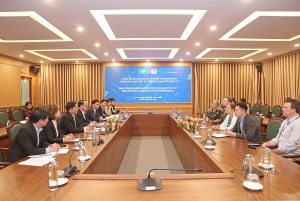The keys to a just energy and coal-fired transition
The JETP and the accompanying resource mobilisation plan identify priorities for the transition to renewable energy and the gradual phasing out of coal power in the electricity sector. By 2022, coal-fired power plants (CFPPs) accounted for 32.5 per cent in the Vietnam’s energy mix.
 |
| Ramla Khalidi, Resident representative United Nations Development Programme (UNDP) in Vietnam |
Vietnam’s eighth Power Development Plan (PDP8) also calls for the gradual transition of CFPPs to alternative forms of energy, which must be initiated in this decade and be fully operational no later than 2050. The PDP8 provides some conditions for the closure of old and inefficient CFPPs, including those in Ninh Binh and Pha Lai, that have been operating for over 40 years.
The PDP8 also provides an outlook to 2050 that includes the gradual introduction of biomass and green ammonia instead of coal; applications that could potentially be applied to other existing CFPPs. There are other technical ways of reducing emissions to zero, including the production and use of green hydrogen, but Vietnam has limited experience with them, and many of the necessary technologies are currently very expensive.
JETP partners are looking for ways to provide technical assistance, and to invest in the transition of coal power generation. The UNDP has recently partnered with the Institute of Energy (IoE) to undertake initial research on scenarios for phasing out CFPPs. The aim of the research is to inform the search for best solutions.
The UNDP and the IoE held a technical meeting in which initial options for conversion were presented by the IoE and discussed between owners of the power plants, potential financiers, and experts from various agencies. We addressed both technical and financial aspects and explored the complexity of plans to phase down or phase out coal.
The first challenge is around tech. Solar and wind power can be competitive with other forms of power, under certain conditions. Other technologies are mature and hold potential in Vietnam, but they remain expensive.
For example, battery energy storage, and other energy storage technologies, as well as offshore wind equipment are still relatively expensive and require large upfront capital. Green hydrogen and green ammonia can be produced, but they require vast amounts of solar and wind power, as well as expensive storage and transport facilities – making these gases very costly.
 |
| The keys to a just energy and coal-fired transition |
Biomass can substitute coal with limited additional investment in CFPP equipment, but it is more expensive than coal and there are questions about whether Vietnam can secure reliable supplies. Other technologies are still being researched and tested in different countries and have not been commercialised.
Secondly, conversion of CFPPs must happen without jeopardising energy security. But with electricity demand continuing to rise, so total electricity production must also keep pace. Therefore, conversion of CFPPs must be accompanied by substantial increases in renewable power production, power transmission, and energy storage throughout the country. Looking at the bigger picture of energy security and sustainability, energy efficiency remains an important factor in the equation.
The third challenge is finance. There is a need for investment to support project pipeline development. In-depth studies and plans must show how to make conversion technically and financially feasible, and proposals must become bankable in order to pull in private finance. One potential source of finance is from carbon markets, which essentially put a price on emissions and therefore converted CFPPs can get a source of revenue.
But financing will also require re-consideration of existing power purchase agreements and how CFPPs operate in the wholesale electricity market, which will not be straightforward. Some technical assistance and investment costs must be carried by IPG members and the government because banks and enterprises will not be willing to pay for those.
If well-designed, investments in new capacities can be made commercially viable and financed by international and national commercial banks: financing CFPP conversions requires smart financial structuring.
The fourth challenge relates to human resources and communities. Approximately 170,000 workers in Vietnam are dependent on coal power generation and coal mining. The government will need to put in place policies to support workers and local economies ahead of planned closures or transitions and facilitate alternative employment or social protection. Community consultations and dialogue will be important to ensure that the voices of those most vulnerable and most at risk are considered in the design of policies and programmes.
In future, detailed conversion plans must be prepared for many CFPPs, and discussed between CFPP owners and other stakeholders. The UNDP will continue to leverage its convener role to connect different stakeholders and partners in support of the energy transition.
At the same time, the government should develop a clear roadmap for CFPP conversion over the period to 2050. The road to the successful achievement of a just energy transition is one that requires a whole of government and whole of society approach, bolstered by the support and engagement of national and international partners and stakeholders.
 | Energy transition will not come without challenges To avoid catastrophic climate change and establish a trajectory that is compatible with the Paris Agreement, transformative changes to energy systems are urgently needed. |
 | MPI calls for high-tech, green energy cooperation from Washington investors Vietnam's Ministry of Planning and Investment (MPI) has welcomed a delegation from Washington to discuss investment opportunities and cooperation in high technology, semiconductors, and green energy. |
What the stars mean:
★ Poor ★ ★ Promising ★★★ Good ★★★★ Very good ★★★★★ Exceptional
Related Contents
Latest News
More News
- Trung Nam-Sideros River consortium wins bid for LNG venture (January 30, 2026 | 11:16)
- Vietnam moves towards market-based fuel management with E10 rollout (January 30, 2026 | 11:10)
- Envision Energy, REE Group partner on 128MW wind projects (January 30, 2026 | 10:58)
- Vingroup consults on carbon credits for electric vehicle charging network (January 28, 2026 | 11:04)
- Bac Ai Pumped Storage Hydropower Plant to enter peak construction phase (January 27, 2026 | 08:00)
- ASEAN could scale up sustainable aviation fuel by 2050 (January 24, 2026 | 10:19)
- 64,000 hectares of sea allocated for offshore wind surveys (January 22, 2026 | 20:23)
- EVN secures financing for Quang Trach II LNG power plant (January 17, 2026 | 15:55)
- PC1 teams up with DENZAI on regional wind projects (January 16, 2026 | 21:18)
- Innovation and ESG practices drive green transition in the digital era (January 16, 2026 | 16:51)

 Tag:
Tag:



















 Mobile Version
Mobile Version